Menu
Products / Primary Care / Connect / Triage
Triage can automatically refer or signpost non-urgent issues to a pharmacy or pre-configured service/support group. This frees up capacity to manage more urgent issues within the practice.
Other platform features include:
- One or two-way patient messaging
- Send and receive attachments via SMS or a free data message
- Remote/video consultation
- Online appointment booking
- Appointment reminders
- Patient Questionnaires
- Friends And Family Test















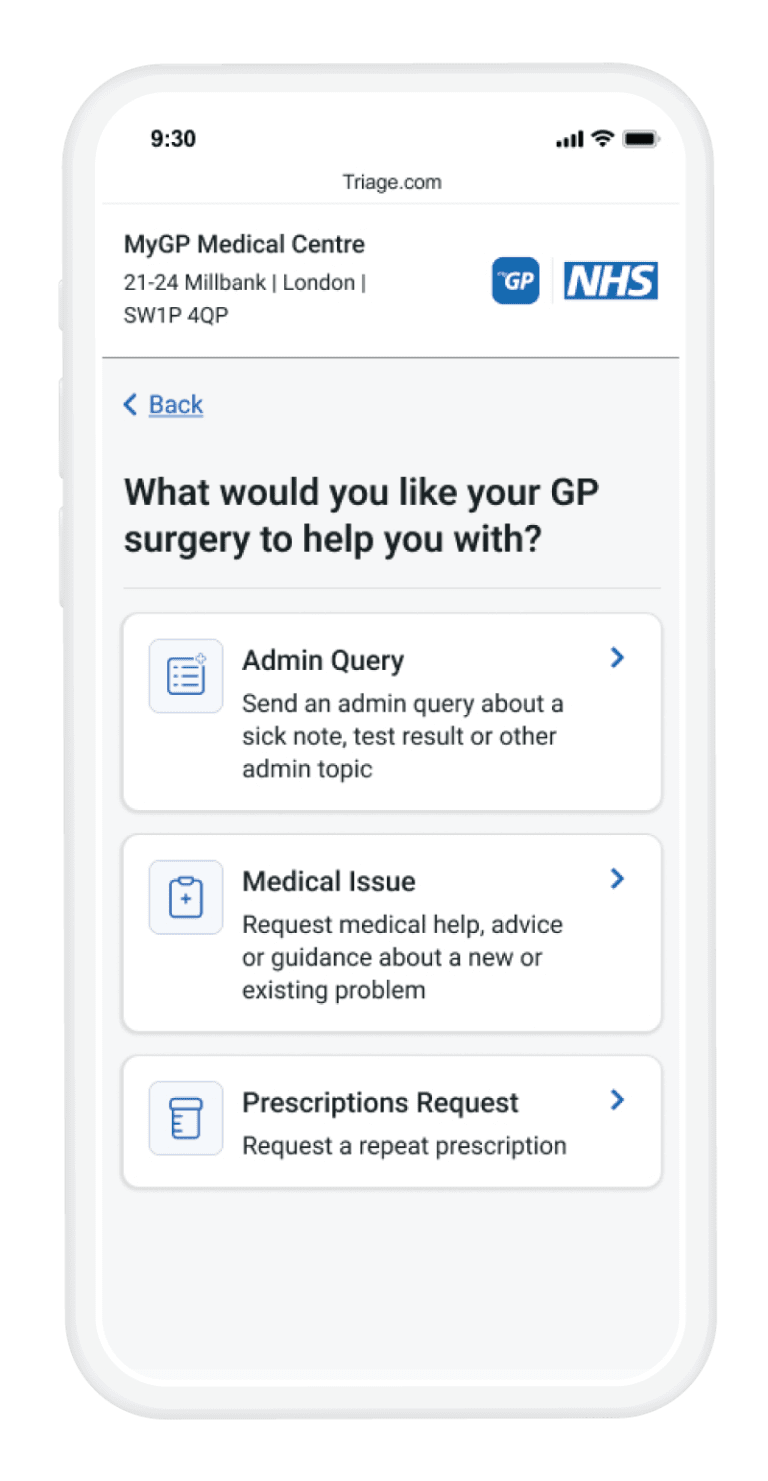

Triage is accessible via a web browser on a mobile device, laptop, or desktop computer.
Patients can submit queries or requests online, along with file or photo attachments, without the need for phone calls or in-person visits.
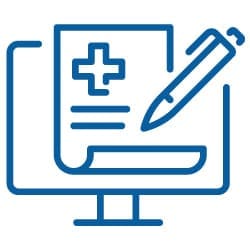

Educates patients on local and national health initiatives
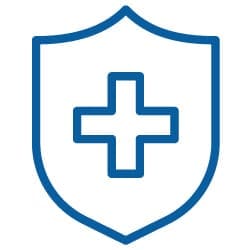

Safe and secure access using NHS Login


Reduces unnecessary appointments and phone calls
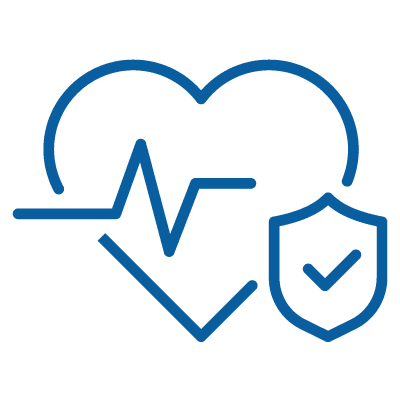

Improves health outcomes
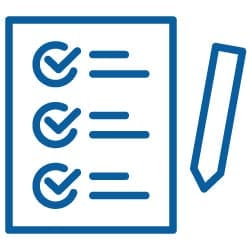

Empowers patient choice
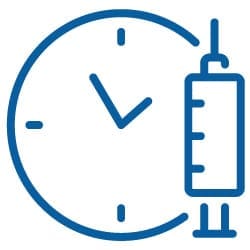

Set out-of-hours days and times for request types
Complete the form below and a member of the team will get in touch shortly.
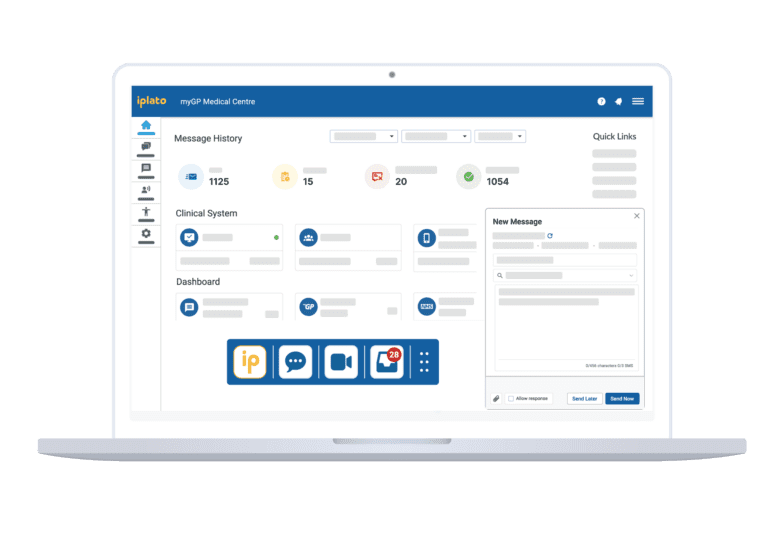

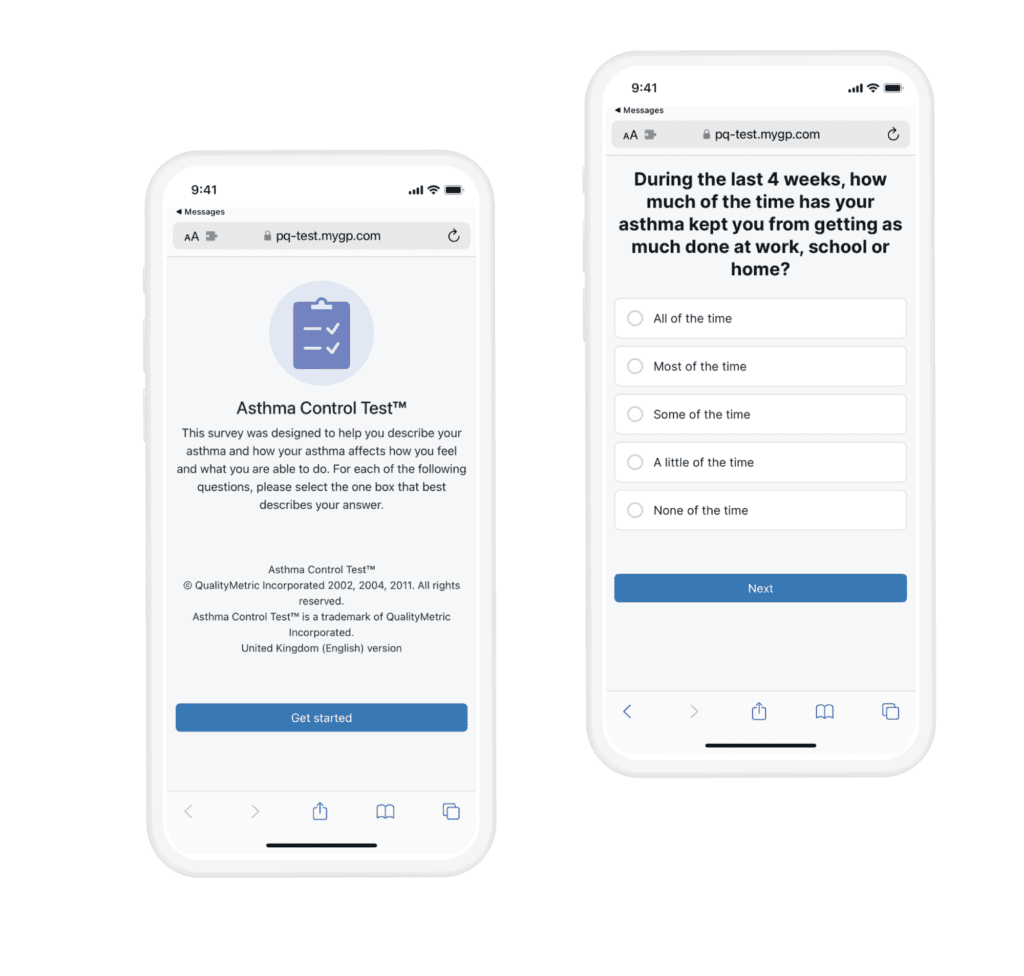

Patient Questionnaires can be sent to specified cohorts in bulk from the iPLATO Platform or Toolbar
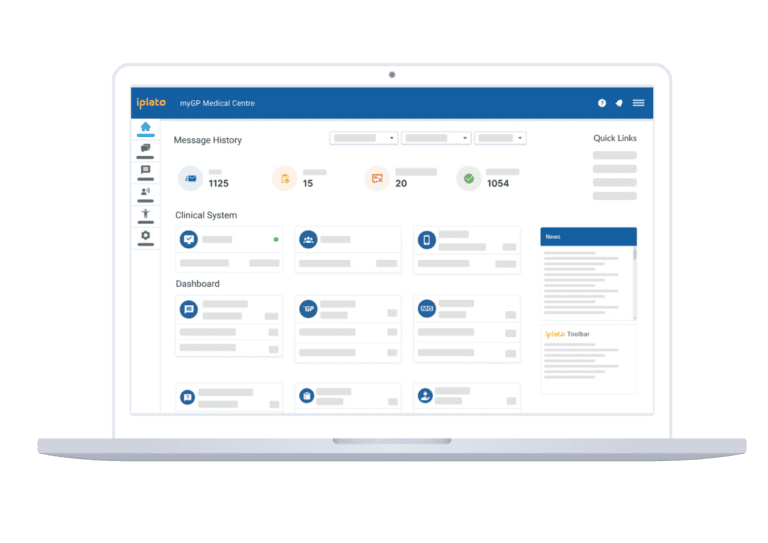

We are redressing the power imbalance between patients and clinicians with preventive health programmes